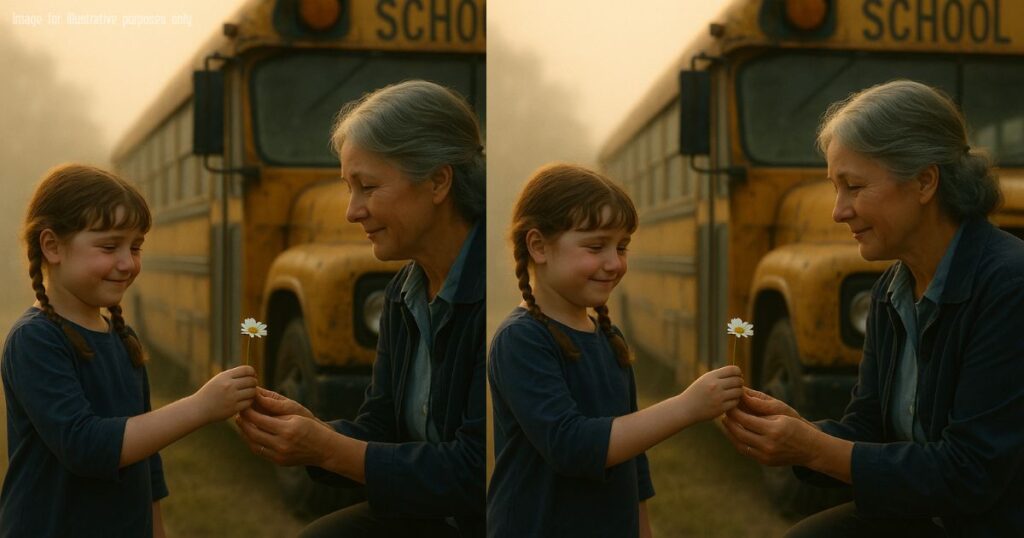I hadn’t seen her in over thirty years, but her presence hit me like a flood. The kind of reunion that makes your knees weak—not because of age, but because memory has weight.
We hugged. Tight and silent. I could feel her heartbeat. I don’t know how long we stood there, but it was long enough for the coffee to go cold in my hand again.
“I’ve been looking for you,” she said.
“Most folks aren’t,” I half-joked, stepping aside. “Come in, sweetheart.”
She looked around my kitchen like it was a church—pausing at the floral wallpaper, the chipped teacup collection, the bus keys hanging by the door.
“You kept them,” she whispered.
“They never asked for them back.”
She sat, and I poured us fresh coffee.
Jenny was a therapist now. Worked with kids who’d seen more than they should. She told me about her clinic in Kansas City, how some mornings, when the children wouldn’t talk, she’d offer them a peppermint.
“They think I’m being sweet,” she said. “But really, I’m just being you.”
I blinked fast, the tears catching me off guard.
She reached into her purse and pulled out a tiny paper flower—faded now, edges bent. “The daisy I gave you. You kept this in your glovebox, remember? I saw it one day when you opened it.”
“I remember.”
Jenny’s voice wavered. “You were the only adult who didn’t ask me to stop crying. You didn’t try to fix me. You just… waited. Do you know what that meant to me?”
I couldn’t speak.
She continued, “My dad got worse before he got better. There were nights I hid under the table. But I knew—every morning—that I had ten safe minutes. The ride with you. I clung to that.”
I reached across the table and held her hand. It was steady now. Strong.
“You gave me the space to become who I needed to be,” she said.
We sat in silence after that. The kind of silence that isn’t empty. It’s full of all the things that don’t need to be said.
Then Jenny stood.
“There’s someone I want you to meet,” she said. She stepped outside and opened the back door of her car.
Out hopped a boy, maybe nine, with freckles and a cowlick. He held a small bouquet—real daisies this time.
“This is my son, Caleb,” Jenny said. “I told him we were visiting a hero today.”
The boy looked up shyly and offered the flowers. “Thank you for helping my mom,” he said.
I took them with both hands.
Jenny wiped a tear. “I’ve told him all about bus 47. About the lady who waited.”
We stood on the porch together, three generations bound not by blood, but by a shared stop on a long, winding road.
That night, I didn’t turn on the TV. I sat by the window, daisies in a vase, and watched the stars come out.
They say time moves on, but I think sometimes, it circles back. Brings you a gift. A daisy. A thank you. A boy who sees you as more than just a bus driver.
Maybe I wasn’t forgotten after all.


